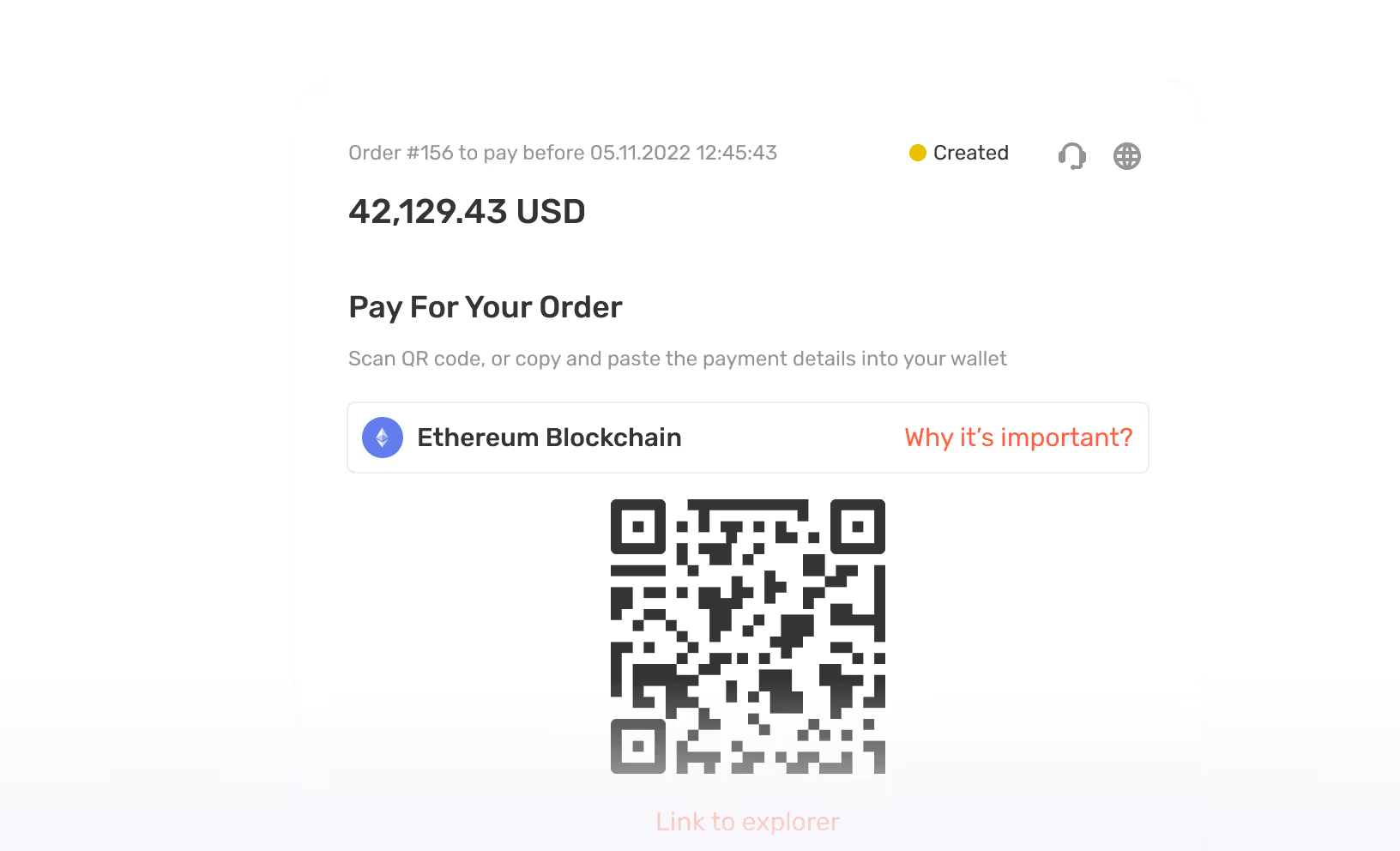Solutions
Orchestrate your wallets, transactions, deposits, payouts, stakings and security
Features
Core Functionality
Accept crypto payments in all major coins and exchange it all into fiat, coins or stablecoins
Features
Crypto Payment Processing
Access global equities with single-stock CFDs from a single account
Features
Wallet as a Service
Access deep liquidity with tight spreads, optimal prices, and extensive market depth
Features
Swaps
Features
Staking
Solutions
Customers
Merchants
Reap the benefits of online market by accepting crypto payments
Online Games
Offer users the chance to play using crypto
Travel Industry
Allow clients to make bookings with crypto
FOREX & CFD Brokers
Offer trades a way to top up their accounts with cryptocurrencies
Legal and Consulting Services
Provide your clients a way to pay for your services in crypto
Marketing Agencies
Attract new clients by accepting payments in cryptocurrencies
Gambling
Crypto payments for online gambling industry is worth billions
E-commerce
Offering crypto payments to customers is now the advantage
Hedge / Investment Fund
Increase your revenue with crypto payments
Customers
Developers
Supported Blockchains & Coins
List of blockchains and coins that are supported by B2BINPAY
Swap Pairs & Limits
Lineup with available currency pairs and info about its limits
Guides (How to)
Step-by-step tutorials how to use the B2BINPAY Web UI
Release notes
Changes, enhancements, bug fixes, and new features
Supported Stablecoins
List of stablecoins that are supported by B2BINPAY
Minimum Deposits & Withdrawals
Full information on currencies within each solution
API
Description and available methods of B2BINPAY API
Supported Tokens
List of tokens that are supported by B2BINPAY
Developers
Company
Pricing







































.svg)


.svg)
.svg)
.svg)

.svg)
.svg)






































-2.avif)
.avif)





